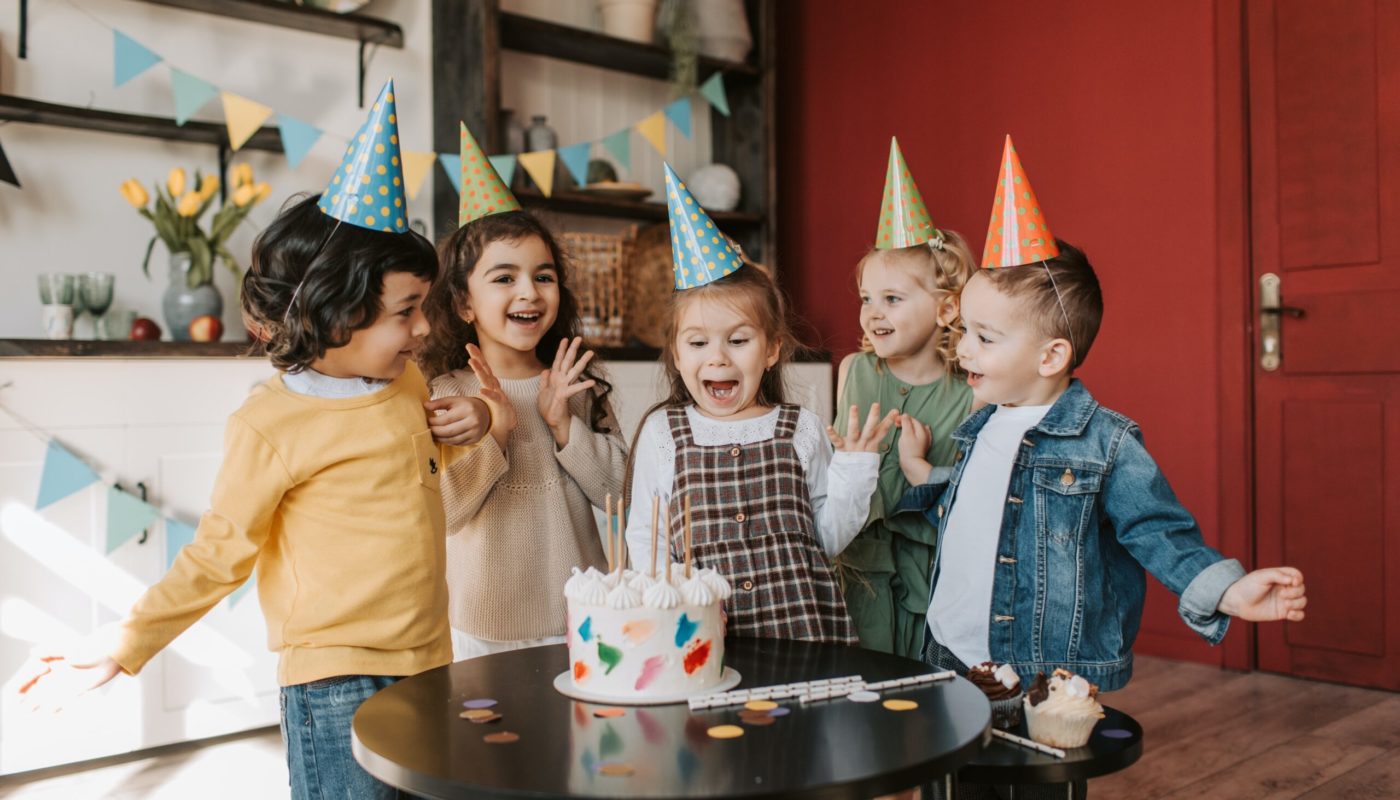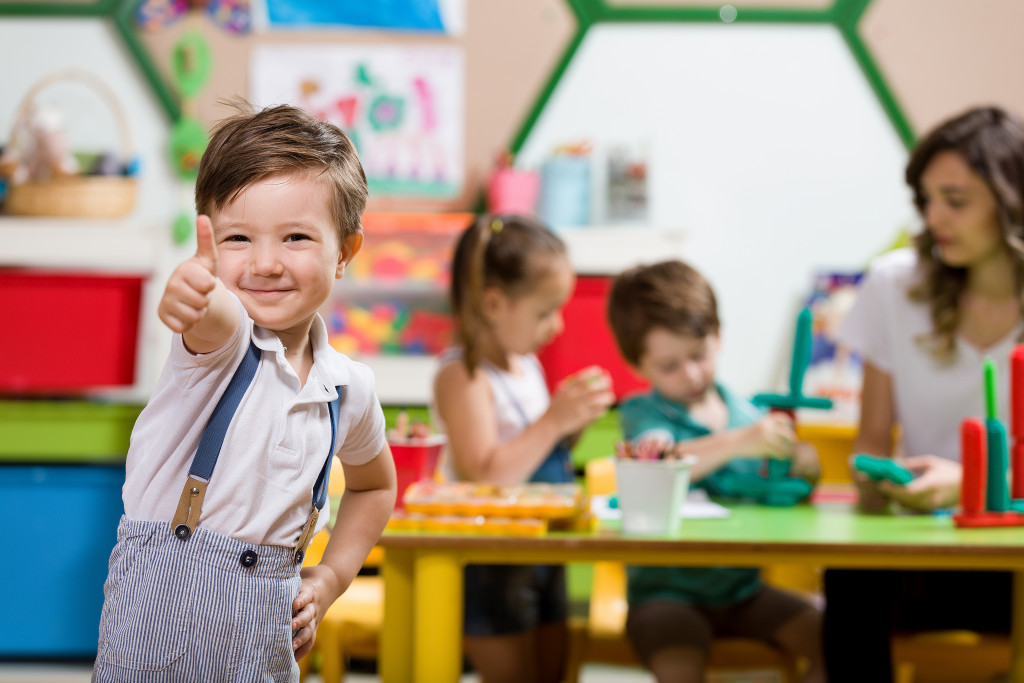Social skills develop naturally as children grow and interact with their environment. Children from birth are in continuous development, therefore, it is essential to help them develop social skills from an early age.
Tip: Before starting a game or activity, we must take into account that our child or student has the necessary skills to carry out the activity, if not, we adapt it to their level. Here are some activities suggested by top kids learning platform Aark Learnings:
Contents
Dramatic partner game
At this age they begin to develop symbolic play, symbolic play is a form of play in which they represent everyday life situations. You can work on social skills by playing, for example, representing characters, feeding toy animals, putting dolls to sleep, treating a stuffed animal…
Another example would be representing situations to learn to greet other people. We explain what he has to do, look into his eyes, smile, listen, shake hands, or wave hello… and then the adult does an example with the child, then we can practice it with another child so that he generalizes this skill with other children.
In the classroom or at home, children can develop interactions with other children through board games, for example with blocks, plasticine, inserting pieces, and fishing games… we promote fundamental skills such as taking turns, communication, respect for the partner or brother and listen, and respect the opinion of the other person.
Play instruments or put on music
Through music, we can promote dialogue and teamwork. Children can dance or play musical instruments together. Games can be played with music or instruments. For example, in “the game of the Chair”, where there are several children around a chair, and when the music stops they have to sit down.
Another activity is each child has an instrument, the tutor or adult says an emotion and each one has to play the instrument, and how they perceive the emotion. One objective to highlight is that they enjoy the company of other people in a group through music, respecting their options.
Painting or crafts
It is a great way to encourage creativity and imagination, developing teamwork, collaboration, and respect for other people’s tastes and ideas. For example, we put the children in pairs, each pair has a large card, where each child is going to use different painting materials to express what they want on the card. They can be to express feelings or to develop the creativity of each one, working in pairs.
Sports Games
Sports are a great way to promote communication and teamwork in a fun way. In these sports, children also learn to coordinate their movements and control their emotions.
Sports are a great way to promote communication and teamwork in a fun way. In these sports, children also learn to coordinate their movements and control their emotions, fostering valuable skills that extend beyond the playing field. Whether it’s a team sport like soccer or an individual pursuit like golf, the experience goes beyond the game itself, and even activities like choosing the right golf bags become part of the learning process.
For example, making a circle and passing the ball without it falling, doing gymkhanas, and multiple games with simple rules. Games are also a great opportunity for children to practice body language and verbal communication.
Cooperative Games
Games that require cooperation between participants are very useful for promoting communication, problem-solving, listening skills, following instructions, and more. You can use traditional games such as “the chain”, “the parachute”, “don’t let the ball drop” or games specifically designed to work on cooperation.
Role-playing games
Role-playing games are a very common resource in early childhood education to work on various skills, including social relationships. In these games, children play the role of fictional characters, such as “the story of the 3 little pigs.”
In this activity, they must interact with each other to carry out a story. Benefits: It helps them learn to cooperate, listen and respect the opinions of others. (The activities have to be with the help of the tutor or family member)
Stories
Stories are also a great tool. Today there are many stories where social skills are worked on, for example, “I like the way I am”, “earthquake mole”, and “Kindness makes me stronger”… after reading we may make some questions related to the story and ask the child about it.
We can also do this activity with “short” videos, where they show you short stories and then we ask them about the feelings of the characters in the story, what happened? Why do you feel that way? Have you ever felt that way? time? etc. These stories or tales will help us explain how the child should act in certain situations.
Board games
At 3 years of age, board games are very practical for teaching social skills, such as communication, taking turns, self-control of emotions when they lose, and collaboration. Examples of popular board games for 3-year-olds, are “the game of the 3 little pigs”, “catch it”, “tragabolas”, “domino” and “stubborn”.
Body language
Body language is a very useful activity to improve children’s social skills. Body language is the way humans communicate without using words. Teaching children to read body language will help them better interpret the intentions of others and will also help them express their own emotions.
Mime game and descriptive game
In the mime game, a child has to represent an emotion or character through gestures and the others have to guess it. In the descriptive game, in pairs, one child describes a situation and the other has to give the solution.
For example, at recess, a child has stolen a sandwich. The other child has to say how will that child feel. And in this circumstance, what should he do? If the answer is correct, the lady will give the team a point. The winning couple will be able to choose a game.
Movies
Movies can also be a good resource. We select movies that show good examples of social skills, and then have a discussion about the movie after watching it or ask questions while we are watching the video, it is advisable that they are short videos.
The importance of social skills at this age is that they interact appropriately with others, which helps them create and maintain healthy interpersonal relationships and these tips will definitely help you.





